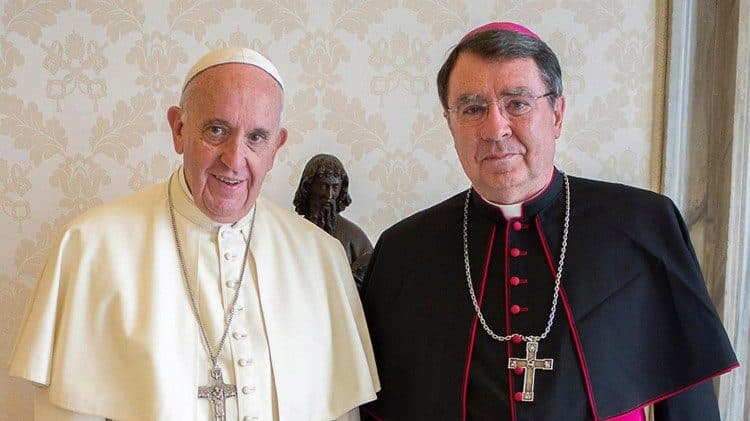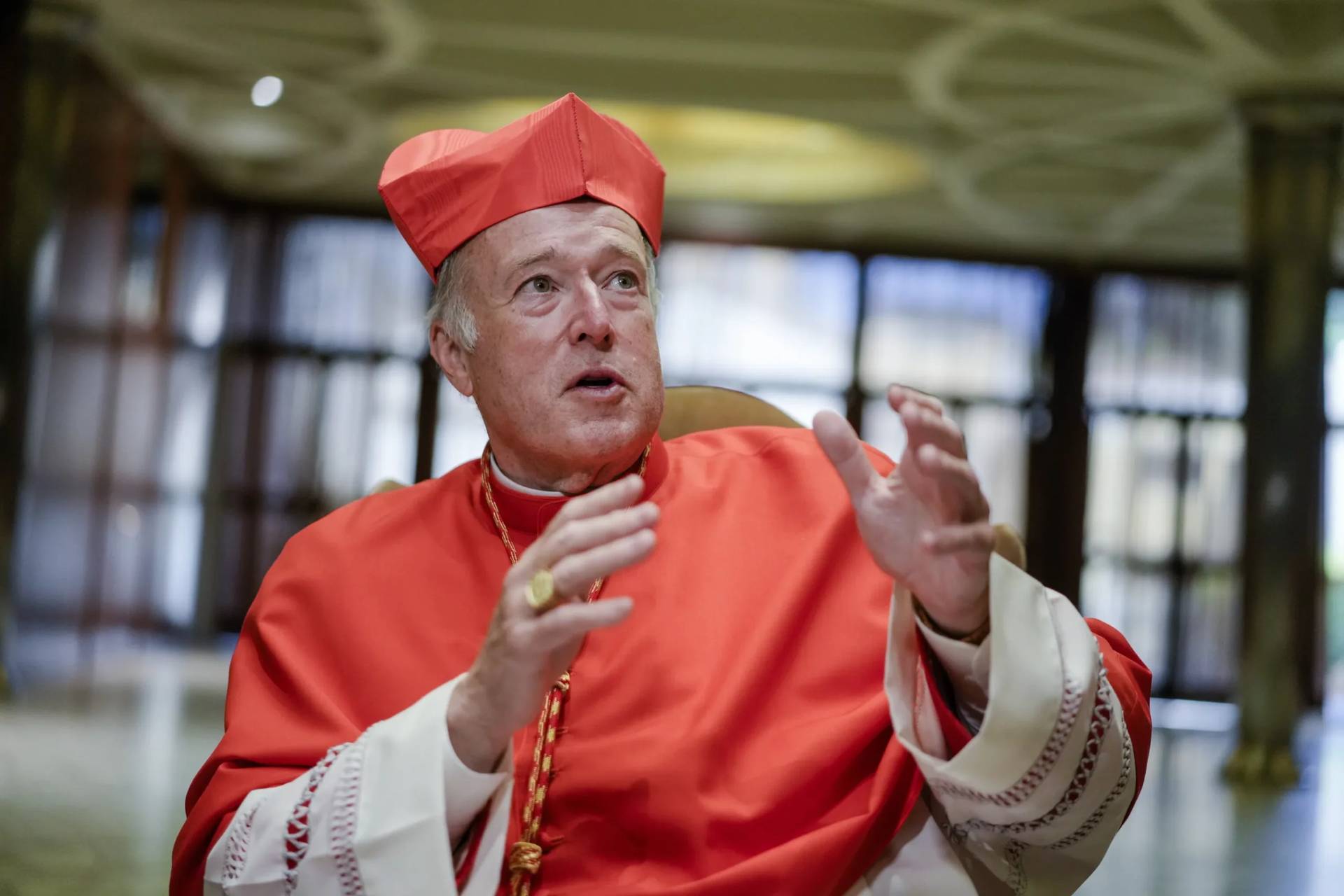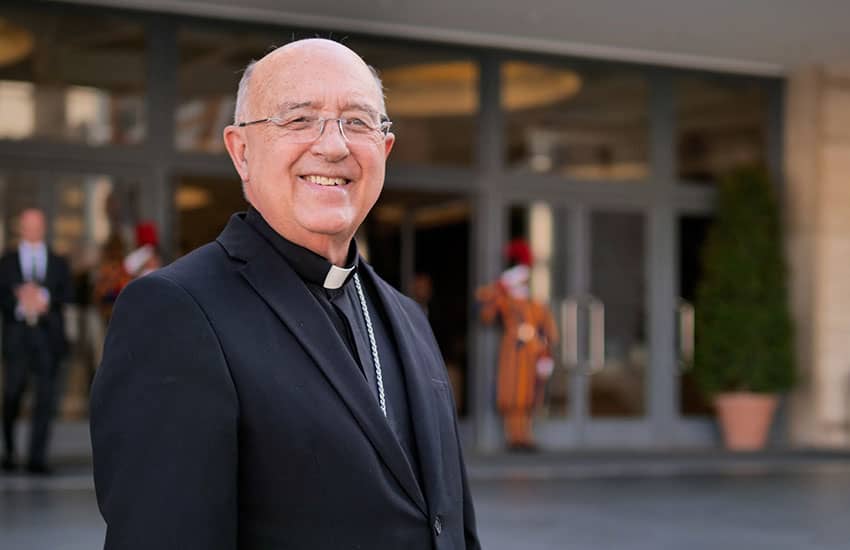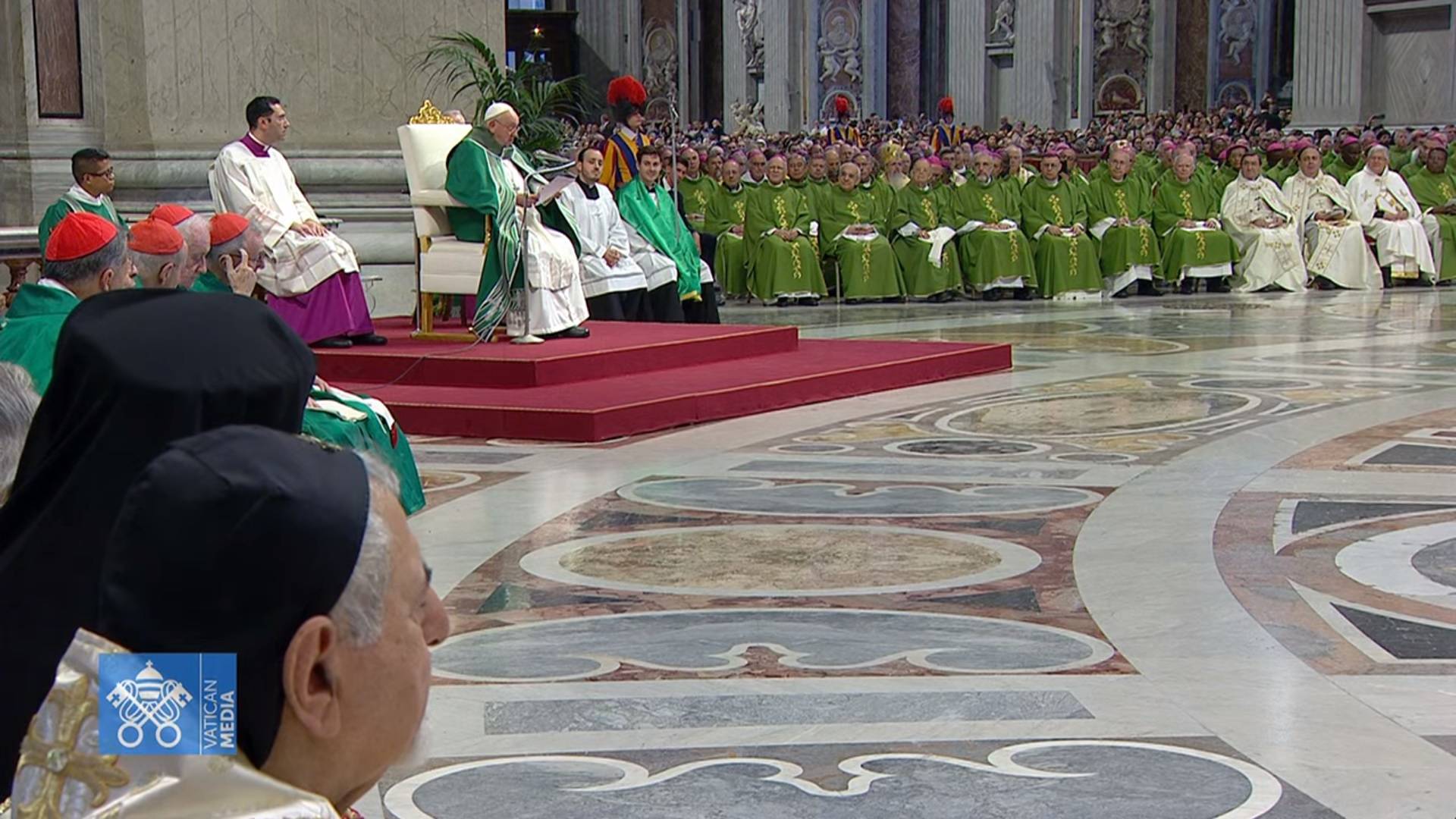ROME – Cardinal-designate Christophe Pierre, Pope Francis’s envoy to the United States and one of his new red hat recipients, has rejected perceptions of a “great divide” between the Argentine pontiff and the Church in the United States.
Speaking to Crux during a Sept. 29 press point in Rome, Pierre said he would not describe the situation between the pope and the US Church as “a great divide, it’s not a great divide. I think it’s more correct to say that we live in a society which is divided, we live in a society which is polarized.”
“There are some different perceptions in the American Church, and there is also the temptation to ideologize issues, and to forget what the Church should be in society. This is the reason why the Holy Father is inviting the Church precisely to find a new way of being Church,” he said, referring to the looming Synod of Bishops on Synodality that begins next week.
He urged observers not to reduce the American Church “to a group of conservatives,” saying the conservative papal critics “are very, very noisy, they are a network of blogs, and they all talk together, but in reality, they represent just a small group.”
“I know that because I’ve been seven years there, and this is not the Church in the United States,” he said, insisting that, “the pope is not against the United States, the pope loves the Church in the United States, I know that.”
Pierre, 77, is a French prelate who since April 2016 has served as Pope Francis’s apostolic nuncio to the United States, serving as a papal representative in the wake of the contentious 2014 and 2015 synods of bishops on the family, and through what are now two tumultuous election cycles.
He is among the 21 prelates who will get a red hat from the pope Saturday, and he will stay in Rome to participate in the Oct. 4-29 Synod of Bishops on Synodality, the first of a two-part discussion aimed at making the Church a more welcoming and inclusive place for all of its members, and which is set to close with a second Rome-based gathering in October 2024.
Over the past seven years, Pierre has had to navigate resistance to Pope Francis and his pastoral vision among American conservative Catholics, as well as the perception that the Argentine pontiff has a prejudice against the United States, driven in part by his criticism of global capitalism, and the fact that his most vocal critics are Americans.
Currently the Vatican is conducting an apostolic visitation into Bishop Joseph Strickland of Tyler, Texas, and while the exact reasons for the visitation have never been stated, it is widely believed the inquiry is related to his public criticism of Pope Francis.
Strickland has repeatedly used social media platforms to criticize the pope and the Synod of Bishops on Synodality, calling the synod “schismatic” and accusing the pope of “undermining the deposit of faith.”
Last month, American Cardinal Raymond Burke, a frequent papal critic, authored the foreward to a booklet published by the conservative American Society for the Defense of Tradition, Family and Property (TFP), which also has repeatedly criticized Pope Francis.
In his comments to Crux, Pierre said he believes Pope Francis’s frustration over the criticism is understandable and he urged Americans to be self-critical and to listen to the pope, even if they disagree, but insisted that the American critics don’t speak for the majority.
Read below for Crux’s brief conversation with Cardinal-designate Christophe Pierre.
Crux: Your appointment and the synod are happening at a time when there’s a perception that there’s a ‘great divide’ between Pope Francis and the American Church. How accurate would you say that perception is?
Pierre: First and foremost, I don’t think it’s accurate. (I wouldn’t) speak about a great divide, it’s not a great divide. I think it’s more correct to say that we live in a society which is divided, we live in a society which is polarized. Polarization is all over the place, in politics, etc. Look at where the country is going now, next year we will have elections, but nobody knows where it goes. And I think this comes from polarization, because polarization is some people, instead of helping the working of normal society through dialogue, [through] listening to one another, are blocking society.
So, there is not a divide – I would not say that, it’s not correct – between the church in Rome and the (US church), it’s too easy to say that. There are some different perceptions in the American Church, and there is also the temptation to ideologize issues, and to forget what the Church should be in society. This is the reason why the Holy Father is inviting the Church precisely to find a new way of being Church, a Church of people who go together, and going together doesn’t mean that everyone thinks the same thing. No. We put ourselves on the way of working together, with our differences, but the differences are there just because they will always be there, but on the other hand, we have to work together.
If you want to be Church, and to be a witness in society, we need to be together. The process of synodality is that. This is the reason why the pope has invited the whole world to reflect on synodality, how to get together in a divided world, where we don’t just defend ideas, but we are witnesses in society. We are accompanying people in their suffering; we are accompanying the women who suffer because of abortion, we are accompanying people because of poverty, we are accompanying politicians when they are divided, and the source of our unity is Christ. The Church will work together if we listen to the Holy Spirit, and if we take away the means to listen then…our dialogue should always be the instrument, the method.
In my opinion, people who think that the synod is about doctrine, it’s not about new doctrine, it’s about the method of evangelizing, that’s it.
Pope Francis himself seems to be very frustrated by the conservatives in the US…
Yes, well, I understand that. You know, first and foremost, don’t reduce the Church to a group of conservatives. They are very, very noisy, they are a network of blogs, and they all talk together, but in reality, they represent just a small group. I know that because I’ve been seven years there, and this is not the Church in the United States. At times it’s frustrating, yes, because they misrepresent the reality and the work as lobbies, and they want to impose their ideas, and there is a tendency to forget the pope. If you forget about the pope, you are not in the Church anymore, because the Catholic Church has the pope as a representative. I know that very well, my job is precisely to help the local Church, in its beauty, because it’s a beautiful Church, not to forget about the pope, and to deal with him and to listen to him. Even if we don’t agree, we listen to him, but you don’t say that this pope is not good. And this is just a small group of people.
How do you handle the fact that most of the pope’s vocal critics are from the United States?
Well, because they are a bit noisy in the United States. I think it’s because they are the United States, you know? But let me be honest: Why are the United States so offended when the pope says something? Who are they? If the pope says something, listen to him, please. I think it’s important. As soon as the pope says something, ‘Ah! The pope says something against us!’ And why not? There is no dialogue without being frank with one another. So, if the pope tells you something, maybe the pope is right, maybe the pope is wrong, so let’s examine ourselves and go ahead. But the pope is not against the United States, the pope loves the Church in the United States, I know that.
Follow Elise Ann Allen on X: @eliseannallen















